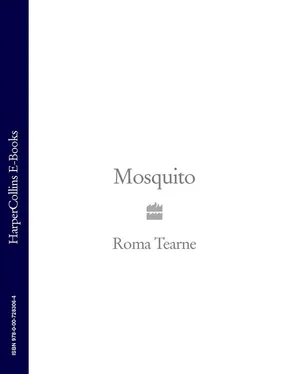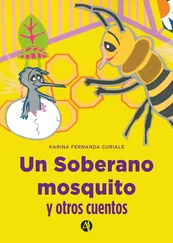1 ...6 7 8 10 11 12 ...16 One morning, some weeks later, Theo decided to visit the temple on the hill. The girl had told him it was very beautiful.
‘You should go,’ she had said. ‘We held my father’s funeral there.’
He had sensed she wanted him to go for this reason and he thought of the irony of it. Burning the man who had already been burned. Mrs Mendis was leaving the temple as he entered. He heard her calling him and looked around for an escape but there was none.
‘I have brought an offering for my son,’ she said. ‘He sits his scholarship exam this morning. I think his karma is good but I want to be sure he passes. I don’t want him to join the army. I don’t want him to die like my husband,’ she said, talking too loudly.
Theo looked at the woman with dislike. She had not mentioned her daughter once. Inside the temple it was cool and dark, and further back, out of sight, the monks sat in rows, their chants rising and falling in slow, low folds. The air was crowded with sounds, like the hum of hundreds of invisible birds. It reminded him of his childhood, of his mother. He had not been in a temple for many years. He stood in the coolness, thinking of Mr Mendis, wondering what he might have been like. And then he thought of the girl, wishing he had known her as a small child. Thinking how fleeting glimpses of that lost time often emerged in her mischievous laugh. Certain, too, that her father would always remain within her, however long she lived.
That afternoon, Nulani talked about her brother’s probable departure.
‘I think he will be happier in England,’ she told Theo. ‘And maybe he will come back to see us when the trouble is over.’
By now she was working on the larger portrait. She wanted it to be a surprise, she said. But she was less happy, he saw. Something was ebbing out of her, some vitality moved away leaving her drawn and hurt. Watching this, Theo felt unaccountably depressed.
‘That boy will never come back,’ Sugi said quietly, when he heard. ‘He only thinks about himself. Once he leaves he will forget about them.’
Sugi watched Theo. Although he said very little he knew all the signs were there. If he is not careful, he worried, Sir will get hurt. Why doesn’t he see this? Why, after all he has been through, is he not more careful? He’s a clever man, but … And Sugi shook his head.
‘Maybe,’ Theo said, ‘things will be easier for her when Jim goes. Maybe the mother will care more.’
‘The Mendis woman has only ever cared about the son, I tell you, Sir,’ Sugi said. ‘I know all about her. After the father was murdered, she used to talk to my friend who works in Sumaner House. And it was always the boy she worried about. Lucky Jim! That’s her name for him. She hardly notices her daughter.’
They were sitting on the veranda once again. It was late and the heat had finally moved a little distance away. Most nights now Theo listened to the menace of the garden, the rustlings and unknown creepings that scratched against the trees. He was hardly aware of doing so, but since the intruder, both he and Sugi were watchful.
‘And her father?’ he asked. ‘What was he like?’
‘People used to watch them,’ Sugi remembered. ‘Mr Mendis used to walk with his daughter every evening, up and down the beach. They used to say you could set your clocks watching those two. They always walked at five o’clock, every day, except when the monsoons came. He used to hold her hand. She was devoted to him.’ Sugi’s eyes moved restlessly across the garden. ‘It must have been terrible for her after he died. She must have felt so alone.’
They were both silent. Then Sugi went off for his nightly surveillance of the perimeter walls and gate, testing his barbed wire, wandering silently through the undergrowth. When he was satisfied that everything was in order, he came back and accepted a beer.
‘She needs to go from this place,’ he continued. ‘There is nothing here for her. Her uncle is a very unpleasant man. And, Sir, I know I’ve said it before, but you should be careful with this family. The girl is good but you are a stranger to these parts. Please don’t forget this.’
The night, once again, was quiet. There were no sounds of gunshots or sirens. Nor were there street lights here, for it was too far away from the other houses. The scent of blossom drifted in waves towards them. Occasionally the plaintive, lonely hoot of a train could be heard in the distance, but that was all.
‘You can’t change anything,’ said Sugi. He sounded sad. ‘You are right, things will take longer than we expect. Life is just a continuous cycle. Eventually, of course, at the right time there will be change. But however hard we try to alter things ourselves, what must be will be. Who knows how long it will take, Sir. Sri Lanka is an ancient island. It cannot be hurried.’
Theo watched the headlights of a car disappeared from view. The yellow beam stretched through the trees, bending with the road, piercing the darkness, searching the night. Then it was gone. It occurred to him there had been no car along that particular stretch of road for weeks.
Someone had thrown a plucked chicken over the wall into the garden. They had tossed it over, cleverly missing the barbed wire. It was trussed; legs together, smeared with yellowish powder, a thin red thread wound tightly round its neck. Even though death had come swiftly, leaving traces of blood, staring at it Theo imagined the frenzy of anger that had brought it to this state. A whole pageant of slaughter lay here, he thought, in this one small carcass. Mesmerised, he gazed at a half-remembered history, of sacrifice both ancient and bloodied. The turmeric had given the chicken’s skin the appearance of a threadbare carpet. He touched the bird with his foot; it was so long since he had seen something like this he had almost forgotten what it was meant for. And as he stood gazing at it, he remembered, in a rush of forgotten irritation, the reasons he had never made this country his home. Impatiently, for the waste of energy angered him, he kicked the chicken across the garden, and in doing so crossed a hidden boundary. For in that moment, it seemed to the horrified Sugi looking on, he did what no man should ever do: he tampered with those laws that could not be argued with.
‘Don’t touch it, Sir, for God’s sake,’ implored Sugi, but he was too late. The deed was done.
‘Don’t touch it, Sir, please. I will see to it. Someone is trying to put a curse on this place.’
Theo grinned. He has been away too long, thought Sugi, distressed. He questioned, instead of accepting. Twenty-odd years living away had made Theo forget. He was trying to single-handedly alter the inner structure of life. And seeing this, Sugi was frightened. His fear clung to the barbed wire that was pressed against the garden wall. Fear had been stalking Sugi daily for years.
‘This town is not as it used to be,’ he said. ‘We used to know everyone who lived here. We knew their fathers and their grandfathers too. We knew all the relatives, Sir. Many people have moved into this area, thinking it is safer here. But the trouble is, this has made it less safe. There are thugs in the pay of the authority, and there are thugs working for those who would like to be rid of the authority. Singhalese, Tamils, what does it matter who they are, everyone spies on everyone else.’ A nation’s hatred has split open, he said, like two halves of a coconut. ‘People are angry, Sir. They can barely hide it.’
Theo was silenced. Other people’s jealousies spilled out around him, dismembered bodies, here and there they scattered randomly, saffron yellow and cochineal. He could say nothing in the face of Sugi’s certainty. He did not want to hurt his feelings. Only the girl, arriving soon afterwards, expressed contempt. The dead chicken did not bother her, she said; she had seen so many before. Her father, she told Theo, had laughed at such nonsense. Her father had been full of peace, she told him. He did not believe violence answered anything, and so Nulani Mendis believed this too. She drank the lime juice Sugi had made for her and it was she who tried to reassure him. She was wearing her faded green skirt wrapped even more tightly around her slender waist and her skin appeared flawless through the thin cotton blouse. Sunlight fell in straight sheets behind her, darkening her hair, shadowing her face, making it difficult to read her expression. For a moment she seemed no longer a child. Had she changed since yesterday? puzzled Theo.
Читать дальше












